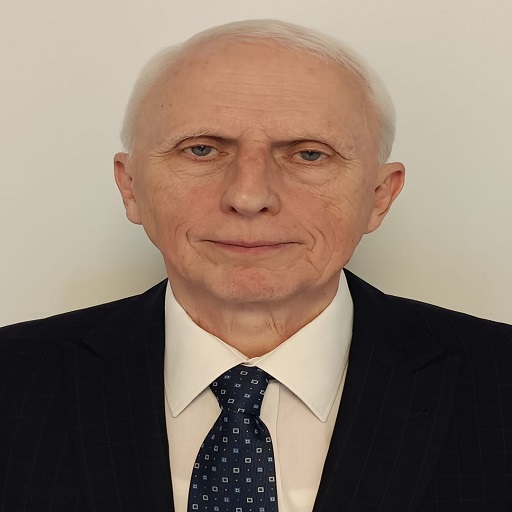Topics
Applied Physics: Lasers and Accelerators, Condensed Matter, Soft matter and materials science

Title: Stochastic Modeling and Simulation of Imperfect Crystals in Materials
Abstract: This research belongs to the field of virtual materials, where the aim is to simulate complex stochastic models of the microstructure, that may help physi- cists to substitute expensive laboratory experiments. In [1] the grain structure of a polycrystalline material with perfect crystals was modelled by a random marked tessellation, where the marks correspond to cubic crystal lattice orien- tations. The next step is to consider imperfect crystals, in the present lecture an approach to investigating this problem is demonstrated on the phenomenon of deformation twinning [2]. Given a loading direction and grain orientation, the propensity to twinning is quantified by means of the Schmid factor. A stochastic model is built, based on the 3D Laguerre tessellation in a bounded window as the microstructure. The texture is represented by an orientation probability distribution and by the choice of a way of assigning individual orientations to grains. Depending on the geometrical parameters of the collection of grains and their crystallographic orientation twinning arises in some grains using the propensity. The formation of parallel twin lamellae is simulated according to another parametric stochastic model which reflects some physical experience. Statistical analyses of the output of the simulation procedure are presented depending on the parameters, especially on the texture and volume fraction of the lamellar system in grains. The computation is arranged in a way that it enables uploading of the virtual twinned microstructure in a software for future micromechanical simulations, cf. [3] for perfect crystals. This is a joint work with O. Kornijˇcuk (Charles University) and L. Heller (Institute of Physics, CAS). The research was supported by the Czech Science Foundation, project no. 22-15763S.
Bio: Studied probability and mathematical statistics at Charles University, Faculty of Mathematics and Physics, Ph.D. in 1986. Assistant professor at the Department of Technical Mathematics, Faculty of Machine Engineering, Czech Technical University, Prague, since 1989. Professor at the Department of Probability and Mathematical Statistics, Faculty of Mathematics and Physics, Charles University, Prague, Czech Republic, since 1998. During the entire academic career supervized 14 Ph.D. students, led or participated on 15 research projects, published 93 research papers. Fields of interest: probability theory, stochastic geometry, applications to the modeling, simulation and statistics of microstructures in materials research.
Applied Physics: Lasers and Accelerators, Condensed Matter, Soft matter and materials science
Organizing Committee will send each paper to 3 independent reviewers, experts in the area of the paper. So, each paper will be evaluated by three independent experts according to the following Criteria...
Registration Fees...
The Proceedings of APSAC will be published by...
The Conference will be held in the...
The Proceedings of APSAC will be published by...
Check our Special Sessions here
Call for Sessions, Workshops, Minisymposia
We encourage you to participate in our conference with a Session,
Symposium, or Workshop. There are several benefits for the organizers:
1. A Honorarium for the Special Issue organizer (i.e. Guest Editor) provided that his Special Issue will collect a minimum of 5 registered papers He can use this Honorarium to travel to the conference!
2. Successful Special Session organizers will be included in the Steering Committee of the conference of the next year.
3. Successful Special Session organizers will receive a volume in Hard Copy of the Proceedings of our previous conferences.
4. Successful Special Session organizers will receive a Certificate for the organization of their Special Session by the General Chairman.
5. Successful Session organizers will be elevated to Plenary Speakers for our conference of the necxt year.
6. Their sessions and their names will appear on the web.
If the authors have already uploaded the same papers independently via the web, then, these papers cannot be considered for your Special Session, Workshop, Minisymposium.
Send us the Title / Organizer / Aim / Topics for your Special Session
by email: apsac.conference@gmail.com like these examples
Copyright © - All Rights Reserved - APSAC